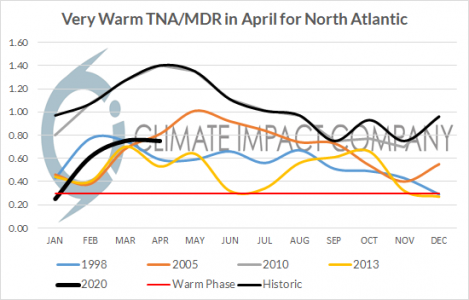04/27/2020, 8:59 am EDT
The synoptic climate details enabling the dry pattern in Southeast Brazil were caused by two regimes…a moist northeast trade wind flow into Northeast Brazil and reaching Central Brazil caused by the negative phase of the Atlantic meridional mode (-AMM) and by the prevailing (dry) land breeze across Southeast Brazil trailing a persistent deep upper trough east of Uruguay.
![Climate-Impact-Company-logo-sm[1]](https://climateimpactcompany.com/wp-content/uploads/2023/08/Climate-Impact-Company-logo-sm1.png)
